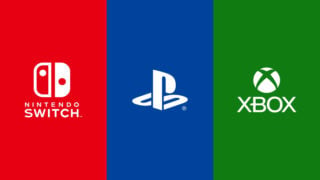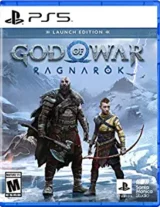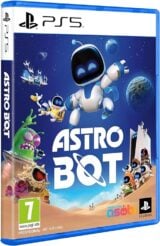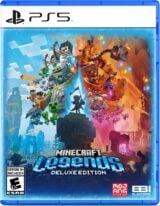Sony claims Microsoft’s ‘true strategy’ is to ‘make PlayStation like Nintendo’
The company argues that Xbox will become the home of FPS games if its Activision deal is approved

Sony has claimed that Microsoft’s “true strategy” behind its proposed acquisition of Activision Blizzard is to have PlayStation “become like Nintendo” and not compete in the 18-rated shooter space.
The comments were made in a newly-published response to UK regulator the Competition and Markets Authority’s decision to expand its investigation into the proposed acquisition.
In its 22-page response, Sony Interactive Entertainment alleges that if the deal were to go through, users would leave PlayStation‘s ecosystem, Microsoft could raise Xbox prices, and independent developers would be harmed in the fallout.
As has been the trend with the regulatory back-and-forth, much of the document focuses on Call of Duty and the perceived harm Sony claims the Activision Blizzard deal would cause, should the flagship franchise be made exclusive to Xbox.
In one section of its statement, the platform holder singles out comments made by Microsoft that other platforms have prospered without Call of Duty, including Nintendo Switch. In its latest response, Sony says this claim ‘ignores the facts’.
SIE argues that Nintendo’s strategy is differentiated from PlayStation and Xbox because it doesn’t rely on 18-rated shooter franchises – games which it argues Microsoft will have virtual exclusive ownership of should the Activision deal be approved by global regulators.
In this sense, it alleges Microsoft’s “true strategy” with the Activision Blizzard deal is to make PlayStation like Nintendo, in that it does not compete in this space.
“Microsoft claims that Nintendo’s differentiated model demonstrates that PlayStation doesn’t need Call of Duty to compete effectively. But this reveals Microsoft’s true strategy,” SIE’s statement reads. “Microsoft wants PlayStation to become like Nintendo, so that it would be a less close and effective competitor to Xbox.
“Post-Transaction, Xbox would become the one-stop-shop for all the best-selling shooter franchises on console (Call of Duty, Halo, Gears of War, + Doom, Overwatch), as the Decision explains, and it would then be free from serious competitive pressure.”
SIE’s statement goes on to claim that Activision’s games, “in particular Call of Duty”, are “critical” to PlayStation.
“The franchise is firmly entrenched in gamers’ psyche: every instalment since Call of Duty was first released back in 2003 has consistently topped the charts,” it states, going on to share redacted percentage figures of the share of its audience it believes it would lose to Xbox should CoD go exclusive.

“Ignoring these facts, Microsoft argues that Nintendo has been successful without access to Call of Duty,” it continued. “This misses the point. The Decision identifies a wide body of evidence showing that Nintendo offers a differentiated experience to Xbox and PlayStation because it is focused on family-friendly games that are very different from PEGI 18 FPS games like Call of Duty.
“This is supported by Microsoft’s internal documents, which, so the CMA found, show that: “In general, Microsoft’s internal documents track PlayStation more closely than Nintendo, with Nintendo often being absent from any internal competitive assessment”.
While the Activision deal has been approved by regulators in Saudi Arabia and Brazil, the UK’s Competition and Markets Authority recently expanded its investigation to a second phase. It is in the process of inviting members of the public to share their views on the acquisition before giving its final decision by March 1, 2023.
In its explanation of its decision to approve the acquisition, Brazil’s CADE said it agreed with Microsoft’s claim that PlayStation did not need Call of Duty to remain competitive.
“As is already seen, Nintendo does not currently rely on any content from Activision Blizzard to compete in the market,” it said.














